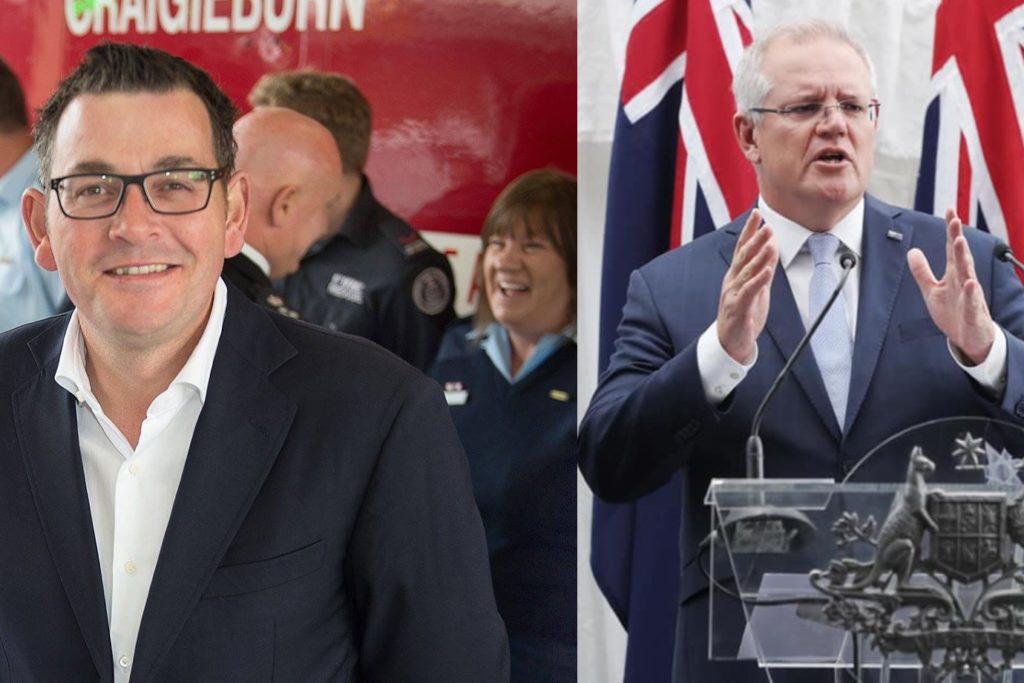There is no doubt that Victoria is in unchartered territory. Melbourne entering Stage 4 lockdown, with a nightly curfew and mass closures of businesses and stores for six weeks, is not a scenario many Australians have lived through, nor one they might have predicted before February.
So the Premier, Daniel Andrews, was absolutely right when he said on Monday ‘there is no playbook’ as the state grapples with trying to stem the exponential spread of coronavirus.
The task Premier Andrews is facing is colossal. But the fact on Sunday it was announced that childcare centres would be closed to everyone except for children of “permitted” workers and vulnerable children, for at least six weeks from Thursday, without any clarification for how those employed in the sector would be paid remains astounding.
Thousands of educators in federally-funded long day childcare services across Melbourne have no guarantee of income for at least the next 6 weeks.
Remember this is the only cohort of workers who have had JobKeeper turned off. (There are other workers who were never entitled to JobKeeper, but those employed in early education were entitled to the safety net but had it turned off on July 20th).
“This is a completely unacceptable position to leave early childhood educators in: with no idea if they will be able to provide for themselves and their families next week,” United Workers Union Early Childhood Education and Care Director Helen Gibbons said. “Throughout this period of uncertainty, educators have kept coming to work every day to provide support for children and families. They’ve done this at great personal risk to themselves and their own loved ones. Instead of recognising and valuing their contribution, last month the Federal Government singled out early education as the only sector to lose the wage support of JobKeeper.
“The sweeping changes announced today in Victoria have exposed the true foolhardiness of cutting JobKeeper for early education. This appalling experiment has put the livelihoods of tens of thousands of dedicated educators at risk.”
This cohort of workers – dominated by women – are not well remunerated and as a result are unlikely to have amassed a financial safety net to withstand six weeks without pay.
“We can’t afford to be without wages,” Karen, a Melbourne-based early educator with 15 years experience, told United Workers. “Most of us have used all our entitlements in the last lockdown, and we have nothing left. How are we going to feed our children or pay our bills? How are we even going to survive?”
United Workers is calling on the State and Federal government to extend JobKeeper to the sector while Victoria navigates this lockdown. It is the very least these workers deserve.
That security for this sector was not considered a priority from the outset when announcing the unprecedented closure of services is desperately telling. Once again it’s hard to escape the conclusion that this is not work that is truly valued by decision makers at this point.
The economic contraction triggered by the global pandemic has proved particularly devastating to the cohort of workers who can least afford it: women. This is unusual as historically men have borne the brunt of Australia’s recessions.
Paid work has been decimated with women losing hours and full-time employment in greater numbers than men at the same time that their unpaid work has soared.
A “pink” recession threatens to undo 30 years of progress and relegate a new generation of Australian women into life-long economic insecurity and poverty. But the disastrous impact of coronavirus on women appears to be invisible to leaders.
If a leader was remotely concerned about the picture for women’s employment then surely the announcement that childcare centres would be closed would come with some reassurance or confirmation for the women employed in this sector? Not to mention the women whose lives depend on this care to get to work.
But nothing.
Both the Victorian Premier and the Prime Minister have indicated announcements will be made later in the week. But early educators – and the sustainability of early education in Australia – should not be an afterthought. The situation in Melbourne could well be replicated in Sydney.
The situation elsewhere around the state, as hundreds and thousands of Victorians lose jobs, will place thousands of services and educators at risk – without any of the insulation that helped during the first lockdown.
Parents are still expected to be paying for care, and services are expected to make do with a 25% transition payment, which will not go close to covering the loss of income. That is the scenario any early childhood education and care service will face – in any state or territory – if a COVID19 case requires a short closure.
Back in April the Prime Minister and the Education Minister were unequivocal that early education and care was an essential service that families and children could not afford to lose. What changed?


